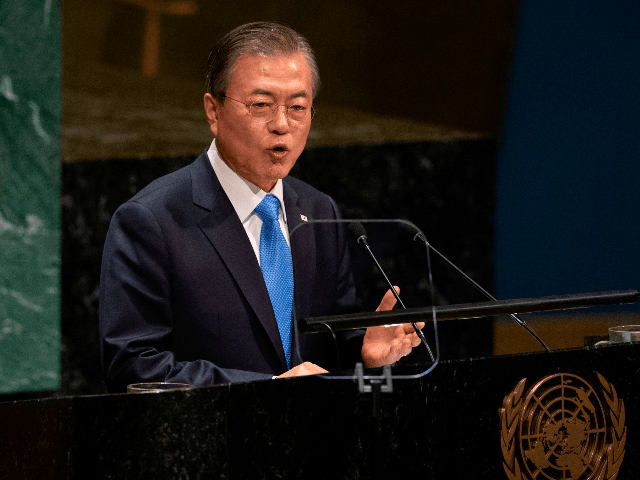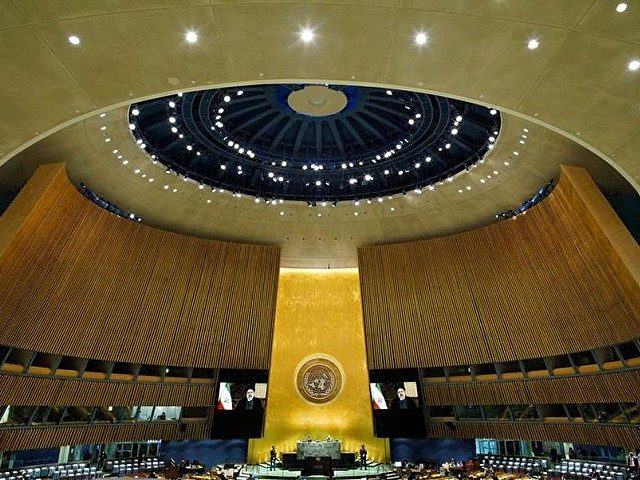South Korea’s government on Friday paid $18 million toward Iran’s delinquent United Nations (U.N.) General Assembly dues using Iranian funds frozen in South Korea by U.S. sanctions meant to discourage Tehran’s nuclear proliferation, Yonhap News Agency reported on Sunday.
“Iran’s right to vote at the General Assembly is expected to be restored immediately with the payment,” South Korea’s Ministry of Economy and Finance said in a statement.
U.S. sanctions on Iran’s oil sector — designed to pressure Tehran into curbing its nuclear proliferation — froze roughly $7 billion in Iranian assets at two South Korean banks (the Industrial Bank of Korea and Woori Bank) starting in May 2018 under the administration of then-U.S. President Donald Trump.
“Some seven billion dollars of Iranian oil revenues have been frozen in two South Korean banks since September 2019, when Washington’s sanctions waiver for South Korea’s imports of Iranian oil expired,” the Tehran Times reported in July 2021.
South Korea’s federal government cooperated with the administration of U.S. President Joe Biden in mid-January to unlock $18 million worth of Tehran’s frozen funds in South Korea to pay overdue fees owed by the Islamic Republic to the U.N. General Assembly. Seoul held “consultations with … the U.S. Office of Foreign Assets Control and the U.N. Secretariat” to secure access to Iran’s arrested assets in South Korea, according to Yonhap.
Tehran reached out to Seoul on January 13 with an “urgent request” for the South Korean federal government to coordinate a release of Iran’s assets in the country, the online newspaper Korea Daily reported on January 22. The Islamic Republic asked for Seoul’s intervention after it was notified by the U.N. that it would lose voting rights within the organization’s General Assembly should it fail to pay $18 million in arrears owed to the international governing body.

Moon Jae-in, President of South Korea speaks during the United Nations General Assembly on September 24, 2019, at the United Nations Headquarters in New York City. (Photo credit should read DON EMMERT/AFP/Getty Images)
“Iran had regained its U.N. voting rights in June [2021] after a similar payment, but said this month it had lost them again because it could not transfer the funds to pay its dues as a result of U.S. sanctions,” Reuters recalled on January 23.
The news agency referred to an almost identical intervention on behalf of Iran by South Korea’s Ministry of Economy and Finance announced by Iran’s ambassador to the U.N., Majid Takht Ravanchi, on June 11, 2021. Tehran’s ability to pay its U.N. General Assembly dues in June 2021 “was helped by cooperation between the Islamic Republic of Iran, the Republic of Korea and several different banks,” U.N. Secretary-General Antonio Guterres’s spokesman, Farhan Haq, said in a statement.
“[T]he Islamic Republic of Iran has paid the minimum amount due and is no longer under Article 19 of the U.N. Charter,” Haq confirmed at the time.
Article 19 of the U.N. Charter stipulates that a member of the body “in arrears in the payment of its financial contributions to the Organization shall have no vote in the General Assembly if the amount of its arrears equals or exceeds the amount of the contributions due from it for the preceding two full years.”

COMMENTS
Please let us know if you're having issues with commenting.